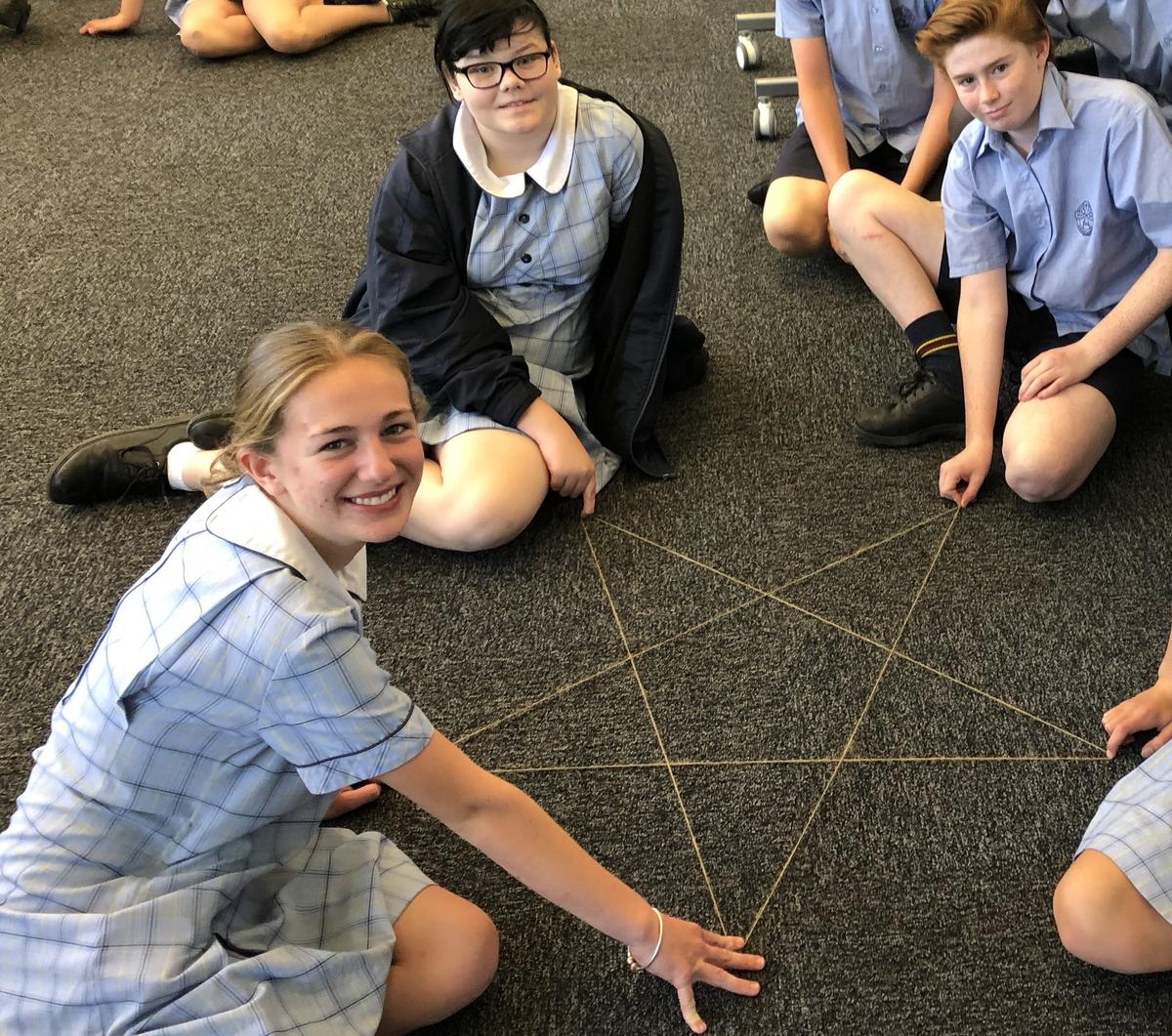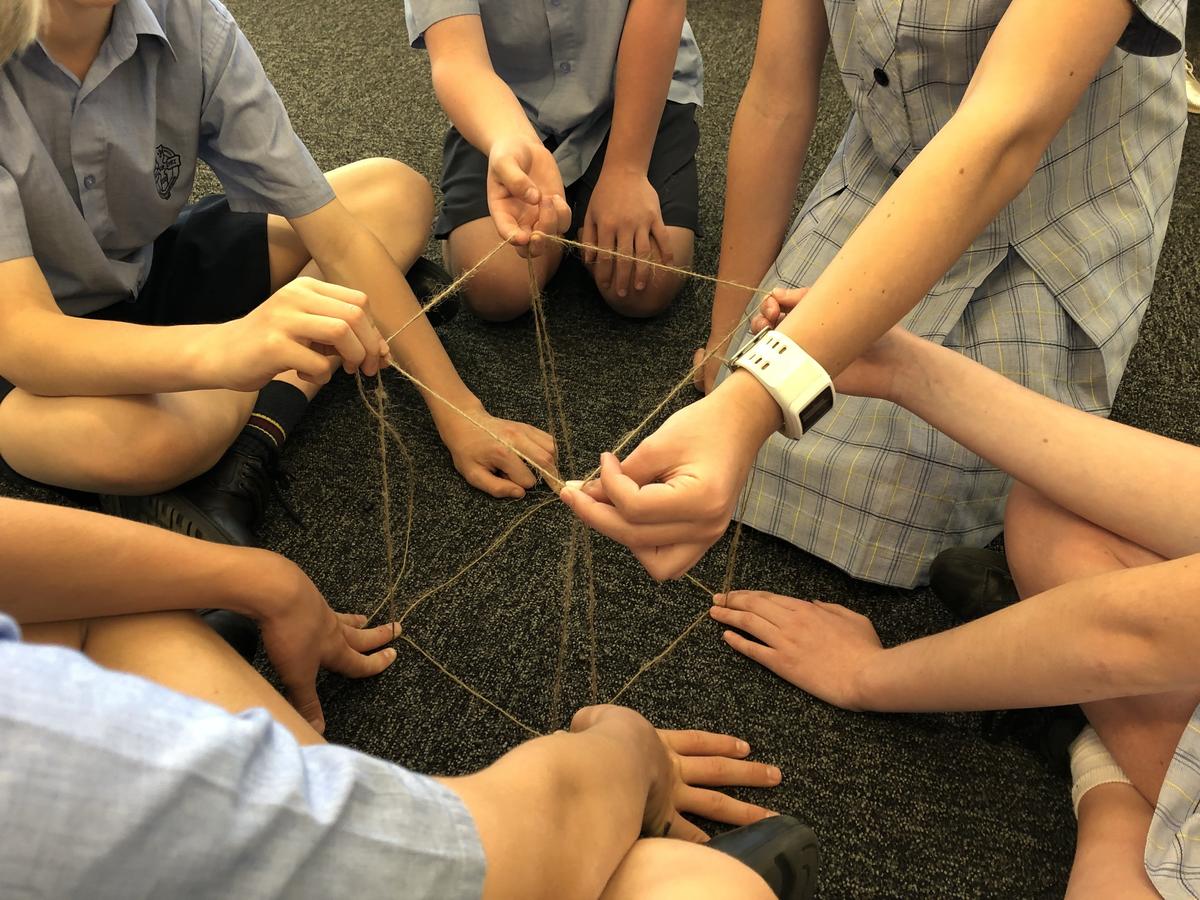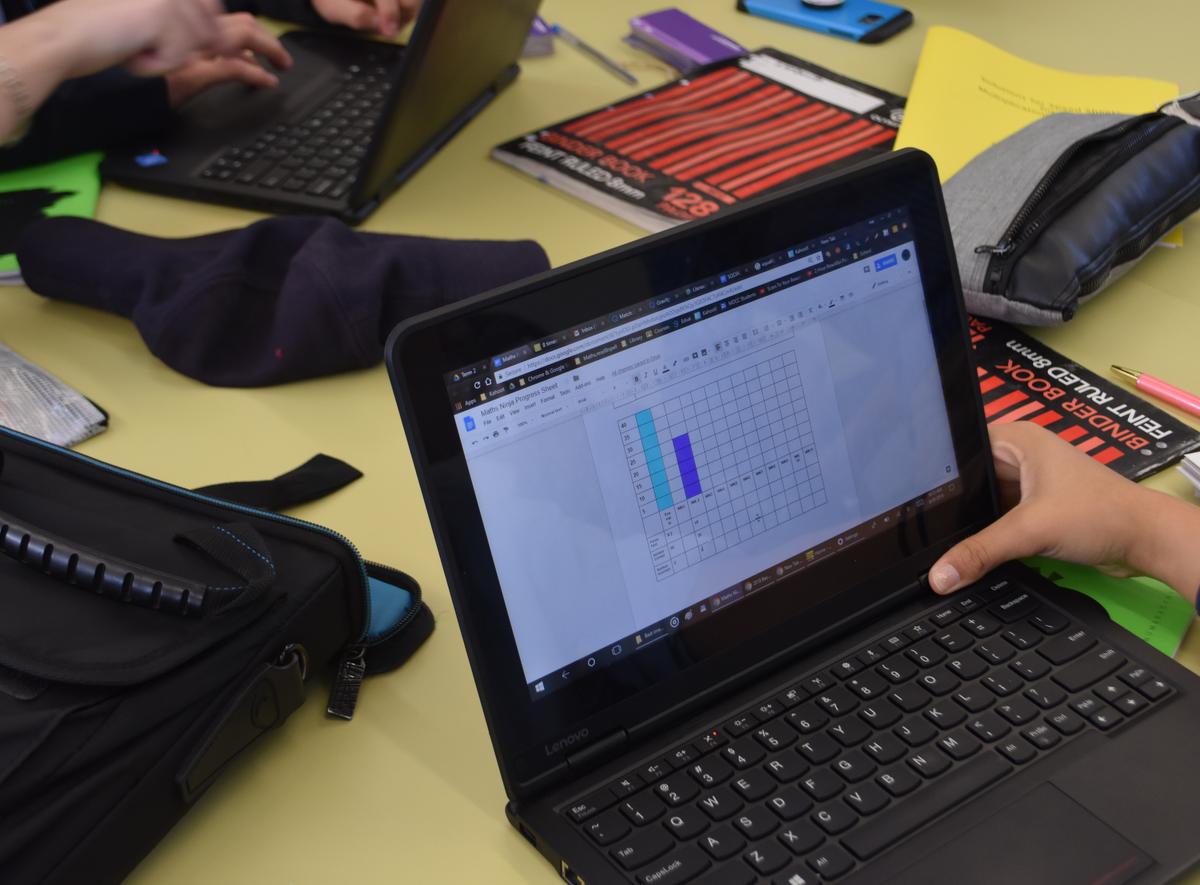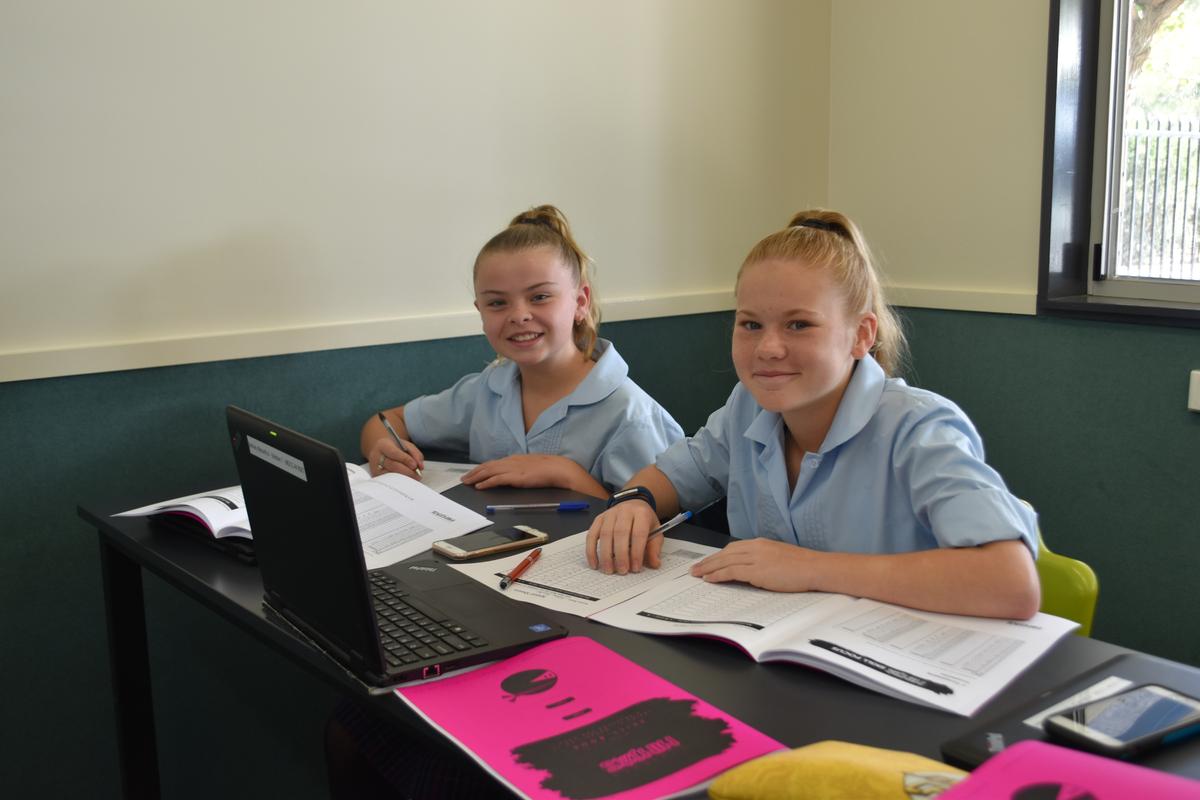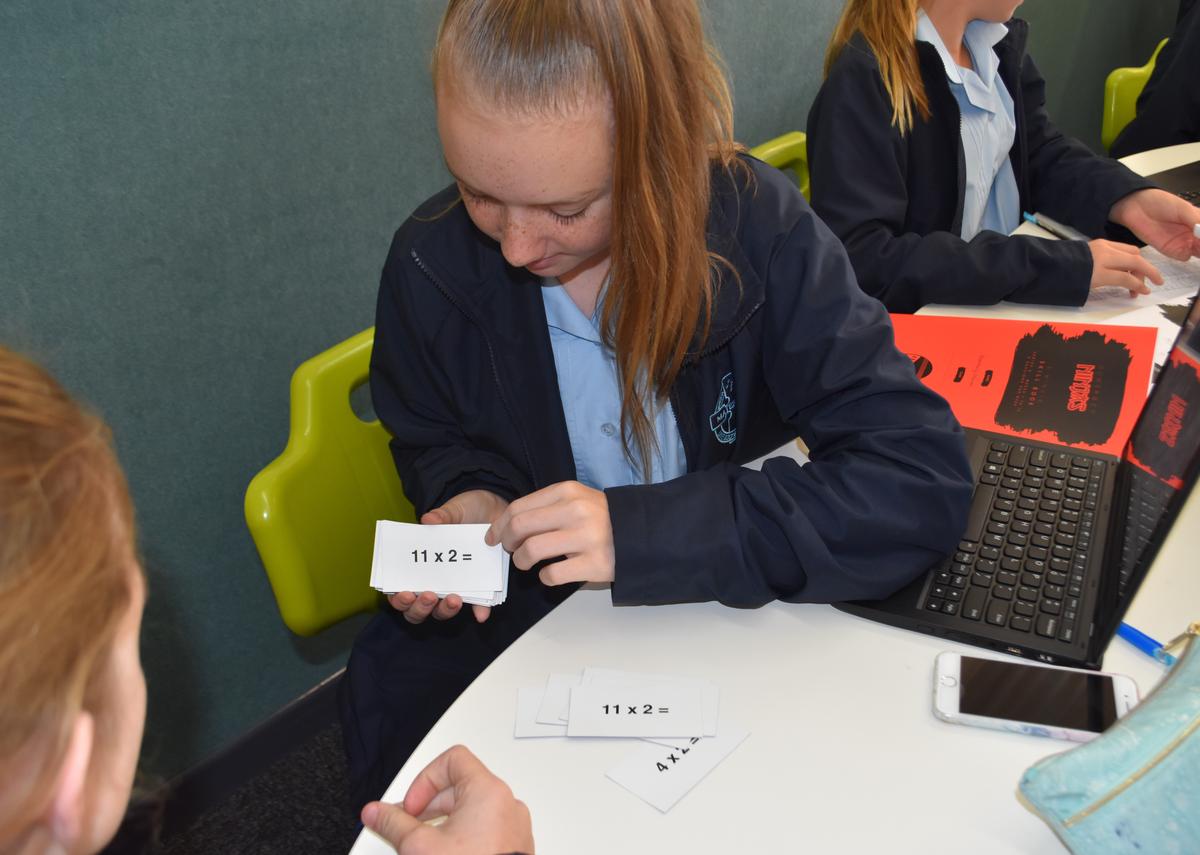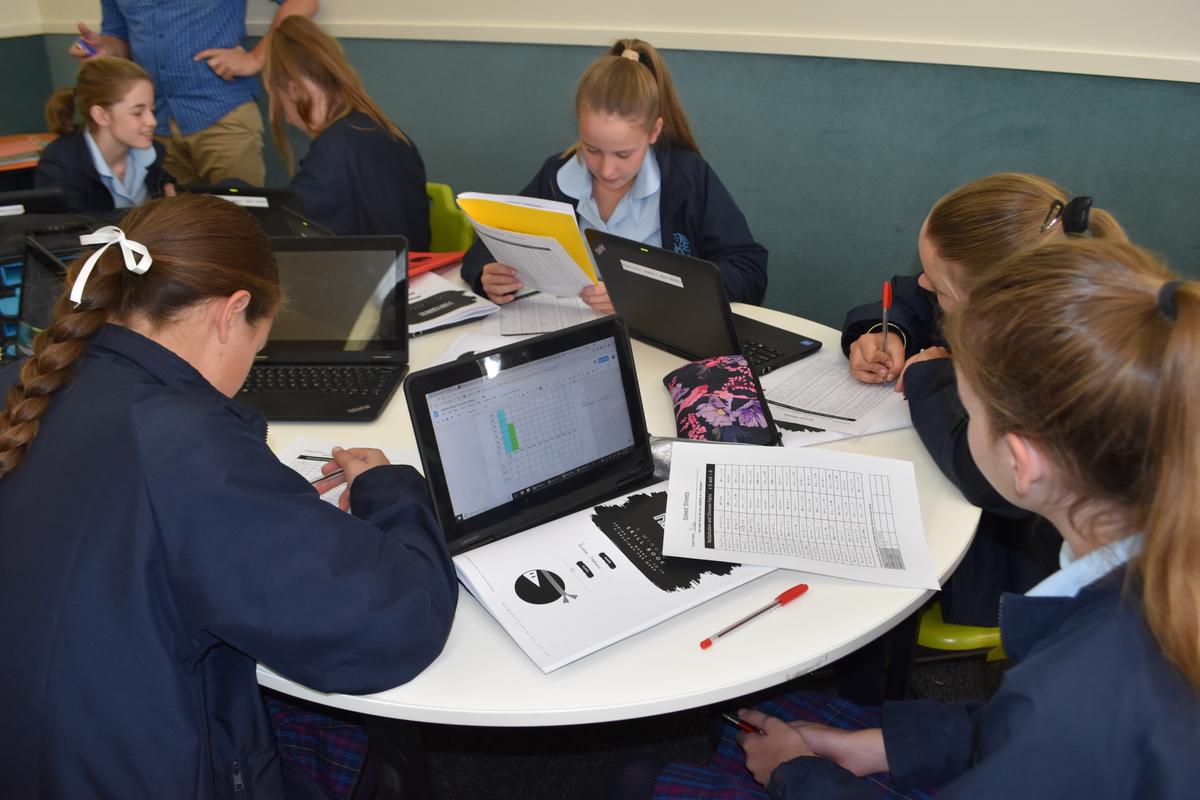Mathematics
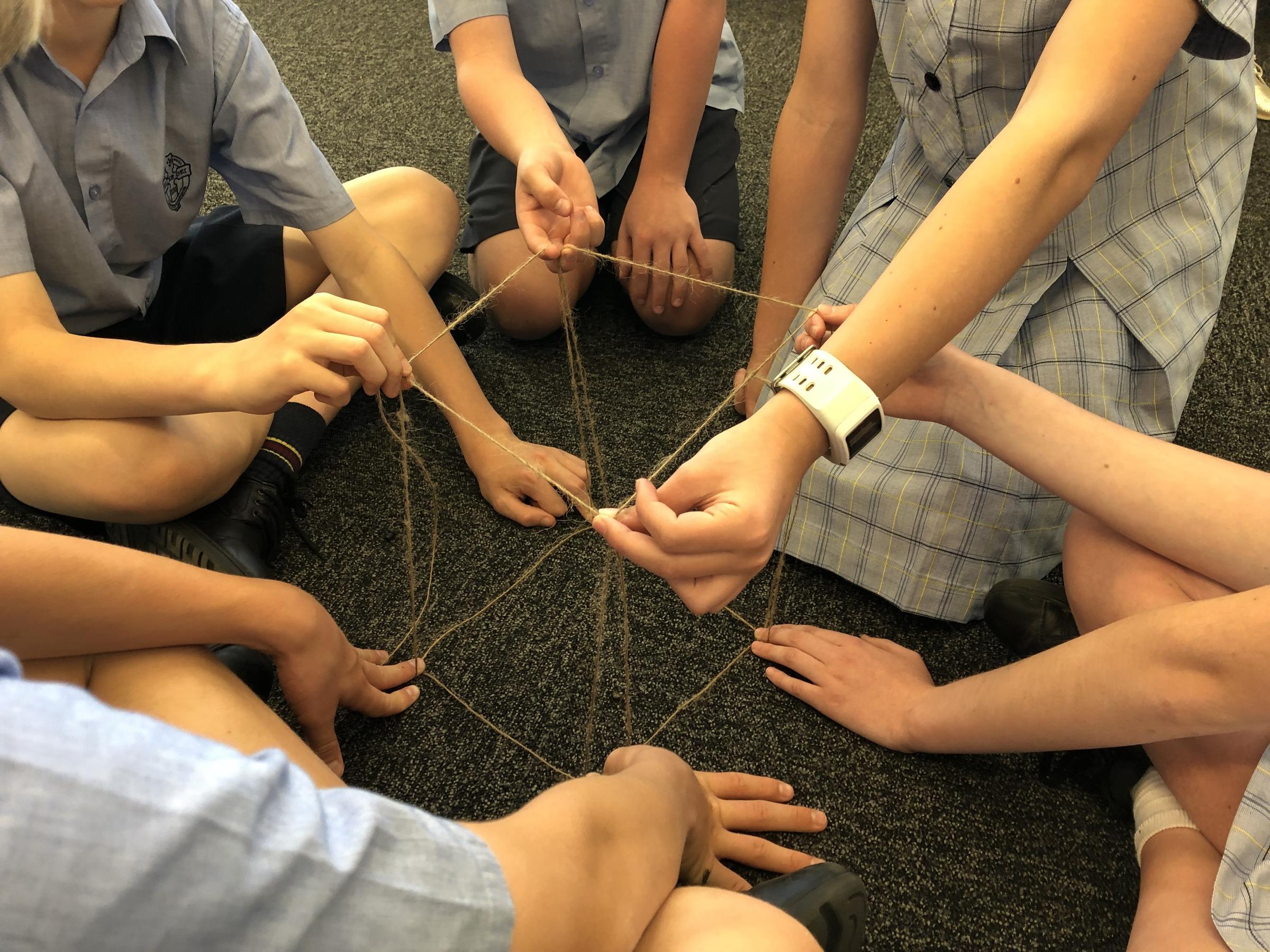
Maths Pathway is a Learning and Teaching Model that is re-imagining the way Mathematics is taught in schools. The model is research-driven and has been developed to support success for all students in mathematics.
Maths Pathway combines a range of teaching methods and classroom practices with an online learning environment to support individualised learning for each student. With Maths Pathway, teachers have the tools and the time to address each student's individual learning needs. This includes developing their problem solving, independent learning, and group work skills, and helping students develop a growth mindset towards their mathematics learning.
Students at Mater Dei Catholic College were asked the following question regarding the program.
“What are your thoughts on the Maths Pathways program?”
Their responses are below:
“I like the Maths Pathways program because it allows me to work at my own pace and the work is suited just for me”
Katarina Yr 7
“Maths Pathways means that I get a choice in what I want to learn and there are self help options there when I need them”
Johanna Yr 7
“With Maths Pathways I enjoy the progression system which means that the work that is available for me is work that I am able to do meaning that I am enjoying maths more because of it’
William Yr 7
An integral part of the program is for the students to be allowed to ‘work mathematically’ which enables them to undertake tasks in collaborative environments to solve complex real world problems. This creates meaning for the students as they can transfer what they are learning in the classroom to everyday contexts. Below are some images of students taking part in a ‘Rich Learning’ task:
Where to from here? Improving Student Learning
With the recent Semester 2 Parent/Teacher/Student (P/T/S) interviews having just past, now is the perfect time to explore some of the recurring themes of discussion that I had with a number of students and their parents.
All students want to do well, the only thing that differs are the learning processes that they have developed over time with some being more or less effective than others. P/T/S interviews are the perfect time to discuss how a student feels as though their learning is progressing and steps that they are currently taking to move their learning forward.
When parents ask me my thoughts about what the student can do to develop better learning habits I recommend focusing on two main components. The first is class time. Class time is the initial and most important place where learning should take place and if a student is looking to improve they must ask themselves “Am I doing all that I can within my 5 classes each day to become a better learner”? If the answer is ‘no’, then this is the first place to start. A student should look to be an ‘active’ learner which entails things like participating in class discussions, using their classmates to assist them with complex problems and most of all seeking fast feedback from their expert teacher. The second aspect is a structured, deliberate study routine at home. This can assist with deepening a students understanding of the work covered that day or better still further explore more challenging mathematical ideas.
The key to the second aspect, which is a study routine is to carefully consider the following:
Work out how much time you can realistically give to study during the week
Work out what times of the day you are most productive and set study times then
Give the most time to your most challenging subject
Do not be too hard on yourself if you miss a session
However the most important point is to:
Constantly evaluate the effectiveness of the study timetable and if it is not working CHANGE IT.
One additional point that was raised by a number of students that I spoke to when discussing how they plan to revise is the fact that they admitted that they actually do not know how to study effectively for mathematics. This came as a bit of a shock to me, seeing as though a number of these students were in their senior years of study. However, these are the things that I would recommend that they do during their ‘study’ time:
Create summary notes of the most important aspects that they learnt that day in a folder.
Compile study cards by concisely breaking down important mathematical concepts onto palm cards. Then use the cover/explain method or get your parents to quiz you with them.
Find a topic that you find difficult and ask your teacher for some resources around these to work on at tutorials or home
Yr 7-10 students- Use the online learning platform HOTmaths to look over notes, watch videos or complete questions.
Attend school tutorials as you have teachers there to assist you when you get stuck but most importantly, when your there and stuck, ask for help.
Mr Kurt McPherson I KLA Leader Mathematics

